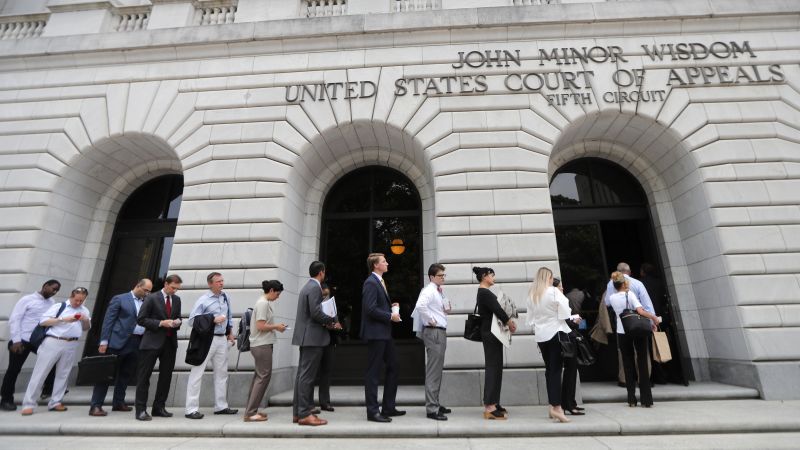A county redistricting plan in Texas deemed a violation of the Voting Rights Act is under review by a conservative appeals court, despite a previous ruling in favor of Black and Hispanic voters. The redistricting plan broke up the majority-minority district of Precinct 3, which had grouped together Black and Hispanic communities that mostly voted for Democrats. US District Judge Jeffrey Vincent Brown overturned the new map, criticizing the actions of the county commission in dismantling the district.
The appeals court will hear arguments on whether the Voting Rights Act requires redistricting plans to protect the political power of multiple minority groups, known as “coalition districts.” Advocates argue that overturning the current precedent would encourage discriminatory map-drawing across the South. Opponents claim that Congress did not intend for multiple classes of minorities to be considered together when assessing compliance with the Voting Rights Act, leading to prolonged litigation over redistricting.
The 2021 redistricting map effectively diminished the voices of Black and Latino communities in Galveston County, according to Judge Brown. The county’s Republican-led commission disregarded customary redistricting processes, excluding public input and the lone Democrat and minority member from the map-drawing process. Brown’s ruling highlighted the county commission’s discriminatory actions during the redistricting process, which significantly impacted minority representation on the commissioners court.
The addition of a second Black member to the commission was deemed irrelevant to the redistricting case, as the new member represented a predominantly white precinct. If the appeals court overturns its precedent regarding coalition districts, it could have significant implications for states covered by the circuit, including Texas, Louisiana, and Mississippi. Proponents argue that race should not be used for political gain, while critics claim that upholding coalition districts leads to prolonged legal battles over redistricting.
The 5th Circuit’s decision to pause Judge Brown’s ruling faced criticism from liberal justices, who argued that imposing a map acknowledged to violate current law was improper. The current precedent allowing coalition districts dates back to 1988 and requires a demonstration of shared history and cohesive voting patterns among minority groups. The county argues that individual Latino and Black populations are too small to bring successful VRA claims, questioning the legitimacy of coalition district claims.
Debates over coalition districts have led to battles between experts, with some arguing that the existing precedent fuels prolonged court disputes over redistricting. The Galveston case exemplifies the challenges and significance of coalition claims, with supporters of the current precedent emphasizing its importance in addressing discriminatory behavior. The outcome of the appeals court decision could have far-reaching implications for minority voters and the future of redistricting practices in the South.


